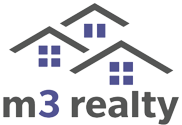Purchasing your first home is by far one of the most important investments you will make in your entire life, and likely the largest. There are so many factors to consider and research, but with time, patience and the right realtor guiding you through the process, you will soon become confident in your decision making abilities.
Understanding the costs involved with purchasing a home and the different strategies used to manage those costs, helps to keep more money in your pocket in the long run. If you plan to obtain financing to purchase a home, you will be need a down payment and the finances to cover the closing costs in order to obtain a mortgage. This article explains the costs you can expect beyond a down payment and closing costs.
So you found the perfect house, beat all the other competing buyers and won the bid. Congratulations! Here are the basics you need to know:
EARNEST MONEY ($1,000 – $5,000)
During a real estate transaction, the very first time you will shell out a good deal of cash will be immediately after your offer is accepted. Within roughly 3 days after your offer is accepted, you will be required to write a personal check to the listing brokerage typically ranging between $1,000 and $5,000, depending on the specifics of your offer.
By pure definition, earnest money is not really a “cost” of purchasing a home, but it is absolutely necessary. The concept of earnest money is simple; consider it a security deposit for the seller accepting your offer and passing up other ready, willing and able buyers. At closing, this money comes back to you as money you have already been paid towards the home, and counts towards your down payment and closing costs.
The amount of your earnest money will play into the strength of your offer. Typically earnest money is roughly 1% of the purchase price of your offer. The greater your earnest money, the stronger your offer. But because this only means “security” to a seller, you generally get diminishing returns after $5,000.
HOME INSPECTION ($350-$500)
Within roughly 2 weeks after an accepted offer, it is HIGHLY recommended you hire a licensed home inspector to go through your future home with a fine tooth comb and identify all major and minor flaws. Most home inspectors are highly skilled and have extensive knowledge about residential buildings. The average home inspection lasts 2-3 hours and a detailed report about the home is generated for your reference. To learn more about home inspections and how they can benefit even the most knowledgeable buyer, check out The Wisconsin Association of Home Inspectors (WAHI) website.
A good realtor will be able to identify many issues at the first visit to the home and assess the general condition of a property before you become emotionally and financially invested, however realtors are not home inspectors and make no representations, warranties or guarantees as to the condition of a home.
ENVIRONMENTAL TESTS ($150-$500)
Also recommended by your realtor are various environmental tests during your home inspection period. Tests are considered to be different from inspections, in that permission has to be granted by the seller during the initial negotiation period for specific testing. A Radon test is generally the most common environmental test in southeastern Wisconsin. Most home inspectors are capable of performing a Radon test, and generally charge roughly $150 for a 48 hour electronic reading of the average Radon levels present in a home.
Though much less frequent than Radon tests, Mold tests are also an environmental test a buyer may consider having. Typically before an offer is written, mold-like substances are easily spotted in conspicuous areas of a home, like a basement. A buyer can then ask the seller’s permission to test for mold before an offer is agreed upon. In more inconspicuous areas, like an attic, mold-like substances can be found by your home inspector. Most inspectors are not qualified to identify a substance as mold without first testing.
There are several contractors in our area certified to identify and test for mold, and these tests generally range from $150 up to roughly $500 depending on your specific situation.
APPRAISAL ($400-$500)
If you are obtaining financing to purchase your home, your mortgage lender will require an appraisal of the property be done. A professional real estate appraiser will go out to the home to take photos and measurements, and compare and contrast the property with other comparable properties in the area that have recently sold. Generally a purchase appraisal is a pass/fail system, and may not accurately reflect the TRUE value of a home. This is a discussion for another time. Either way, a great question to ask your lender is if the appraisal fee, which is usually collected up front at the mortgage application, can be considered in your closing costs and prepaid expenses.
Appraisals are usually given a 25-35 day window to occur after an accepted offer, and can take 7 to 10 days to complete once the appraisal has been ordered by your mortgage lender. Often times appraisals are ordered within a short time after an accepted offer occurs. If your home inspection blows up and you are forced to exit the contract (with your earnest money of course) the last thing you want to do is pay another $400-$600 on an appraisal that you’re walking away from. A good realtor will strategize with you and your lender about the best time to order the appraisal and make sure you aren’t spending money unnecessarily.
REALTOR FEE ($0 – $500)
A buyer’s agent commission is typically paid by the listing agent in the transaction. A seller hires a realtor to sell their home, pays them a commission and the listing agent puts the property in MLS and offers a buyer’s agent a split (usually 60/40 in our area) of the commission. This way a buyer is represented by a realtor at no cost to them, and a seller does not have to pay more money for you retaining the services of a realtor. HOWEVER, some realtors will charge a buyer an additional fee for working as their realtor. We here at M3 Realty will NEVER charge a buyer additional fees no matter what! Not then, not now, not ever. Period.
We have a lot more to tell you about. Call us, text us, email us anytime. We work for you!


I appreciate it that you mentioned paying for the realtor’s commission as part of the initial cost of buying a house. By acting as a middle person it’s only right that they realtor get paid for representing the buyer. Mom is interested in buying a new home on land owned by the municipality and I think she should get a realtor first to know if this is a viable decision.